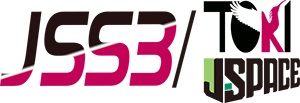Development of a high-precision unstructured mesh flow solver for aerodynamic design of turbomachinery cascade
JAXA Supercomputer System Annual Report February 2023-January 2024
Report Number: R23EDA101C13
Subject Category: Aeronautical Technology
- Responsible Representative: ISHII Tatsuya, Director, Aviation Technology Directrate, Aviation Environmental Sustainability Innovation Hub
- Contact Information: Taisuke Nambu, Aviation Technology Directorate, Aviation Environmental Sustainability Innovation Hub(nambu.taisuke@jaxa.jp)
- Members: Manabu Hisida, Hamidreza Kheirandish, Junichi Kazawa, Takahisa Kohno, Taisuke Nambu, Kanako Yasue
Abstract
FaSTAR-Move-AE, a fluid analysis solver for unstructured meshes, which is mainly targeted at turbomachinery analysis, is developed. This solver will enable aerodynamic analysis of cascades with complex geometry with practical accuracy and cost, and will improve the turbomachinery design of Japanese engine manufacturers.
Reference URL
N/A
Reasons and benefits of using JAXA Supercomputer System
For large scale computations in the future, programs should be tested under the same computational environment.
Achievements of the Year
We are conducting the development of the fluid analysis solver FaSTAR-Move-AE using unstructured grids, with a focus on the blade rows of turbo machinery as the main analysis target. This fiscal year, we conducted validation using publicly available data of a linear cascade with the aim of advancing detailed unsteady analysis using DES/LES.

Fig.1: Comparison of analysis results between conventional advection term analysis scheme (SLAU) and low dissipation scheme (SSKEP). (Left: SLAU method, Right: SSKEP method)

Fig.2: Differences in downstream pressure loss analysis results due to variations in advection term analysis schemes.
Publications
- Non peer-reviewed papers
Improvement of Advection Term Analysis Scheme for Aerodynamic Analysis of Blade Rows using Unstructured Grids, 2023 annual meeting of Gas turbine society of Japan
Usage of JSS
Computational Information
- Process Parallelization Methods: MPI
- Thread Parallelization Methods: N/A
- Number of Processes: 1 - 2048
- Elapsed Time per Case: 240 Hour(s)
JSS3 Resources Used
Fraction of Usage in Total Resources*1(%): 0.10
Details
Please refer to System Configuration of JSS3 for the system configuration and major specifications of JSS3.
| System Name | CPU Resources Used(Core x Hours) | Fraction of Usage*2(%) |
|---|---|---|
| TOKI-SORA | 2656834.93 | 0.12 |
| TOKI-ST | 809.32 | 0.00 |
| TOKI-GP | 0.00 | 0.00 |
| TOKI-XM | 0.00 | 0.00 |
| TOKI-LM | 0.00 | 0.00 |
| TOKI-TST | 0.00 | 0.00 |
| TOKI-TGP | 0.00 | 0.00 |
| TOKI-TLM | 0.00 | 0.00 |
| File System Name | Storage Assigned(GiB) | Fraction of Usage*2(%) |
|---|---|---|
| /home | 192.67 | 0.16 |
| /data and /data2 | 20900.87 | 0.13 |
| /ssd | 2130.62 | 0.20 |
| Archiver Name | Storage Used(TiB) | Fraction of Usage*2(%) |
|---|---|---|
| J-SPACE | 7.46 | 0.03 |
*1: Fraction of Usage in Total Resources: Weighted average of three resource types (Computing, File System, and Archiver).
*2: Fraction of Usage:Percentage of usage relative to each resource used in one year.
ISV Software Licenses Used
| ISV Software Licenses Used(Hours) | Fraction of Usage*2(%) | |
|---|---|---|
| ISV Software Licenses(Total) | 21.31 | 0.01 |
*2: Fraction of Usage:Percentage of usage relative to each resource used in one year.
JAXA Supercomputer System Annual Report February 2023-January 2024


